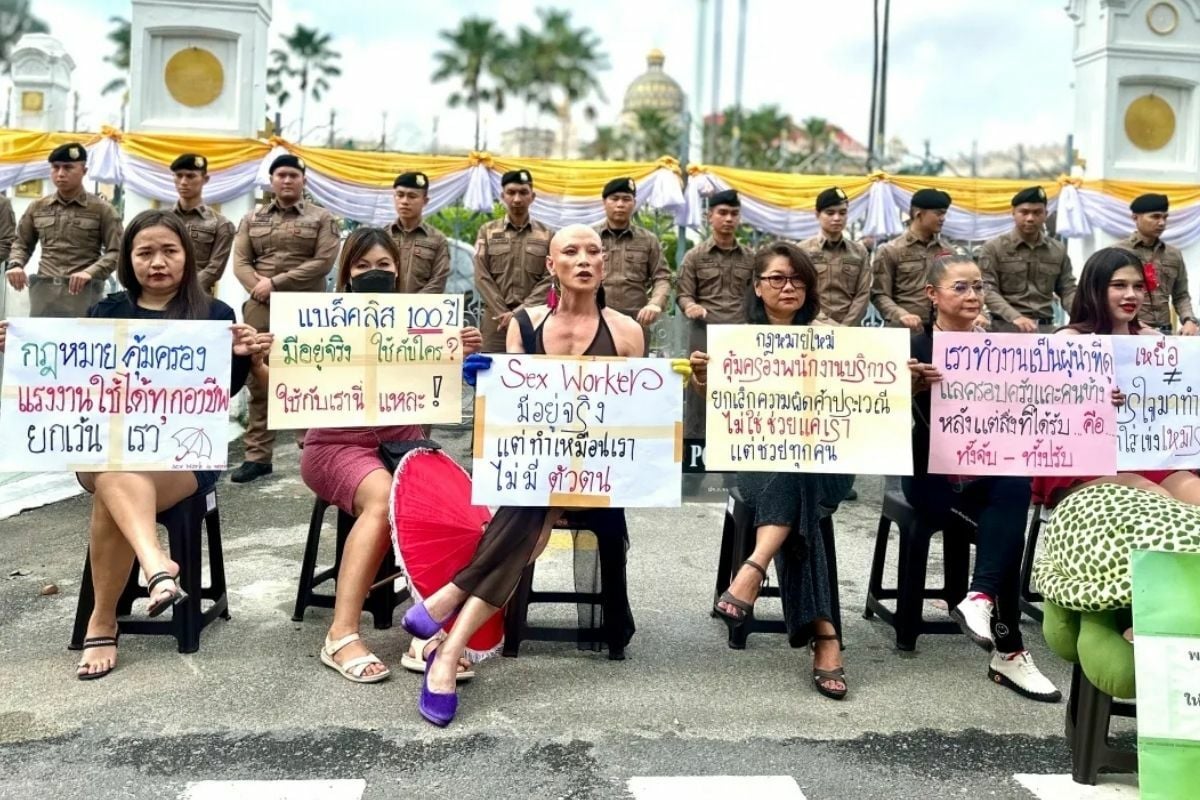Thai sex workers rally at Parliament for protection act

Thai sex workers protested outside Parliament today, October 2, to follow up on a protection act proposal in Thailand. This marked the third protest on the matter.
Workers from entertainment venues, massage parlours, karaoke venues, go-go bars, as well as freelance sex workers and members of the Empower Foundation, hosted the event called “I come to demand my laws. Sex work is work.”
Each protester was seen holding signs with various messages calling for their rights and equality. The messages on the signs stated…
“Laws protect workers in every industry, except us.”
“Blacklist for 100 years, for who? It’s for us.”
“Sex workers really exist. Stop acting like we are absent.”
“New laws to protect everyone in the entertainment industry. No more illegal prostitution. Not only help us but help everyone.”
“We are working to take care of our families but all we get are imprisonment and fines.”
“Victims are not the same as workers who willingly offer sex services. Stop the stereotype.”
The group also placed a turtle sculpture with its mouth taped shut outside Parliament to symbolise how the protection of sex workers and other workers in the nightlife industry is progressing very slowly.
They submitted a formal request to Prime Minister Paetongtarn Shinawatra and a representative came to receive the letter on the sex workers’ behalf.
This marked the third time the sex worker group has come forward to seek justice and equal treatment, like other workers. They expressed that they did not want to protest a fourth time, hoping the laws would come into effect soon.
The Department of Women’s Affairs and Family Development, which oversees the legislation, told ThaiRath that the laws were on hold due to changes in the government committee. The department promised to follow up on the legislation for the protest group.
In a related report, PM Paetongtarn sparked controversy with her plan to develop an entertainment complex that would allow sex workers to legally offer services and require them to pay taxes, just like other occupations.
Some critics opposed the idea, arguing that legalising sex work could lead to child exploitation and trafficking. As a result, both the entertainment complex plan and the decriminalisation of sex work remain under debate.
Latest Thailand News
Follow The Thaiger on Google News:


























